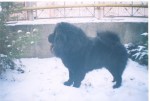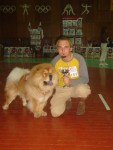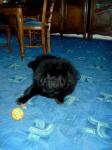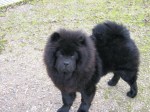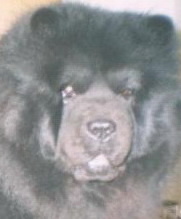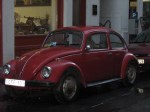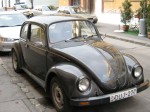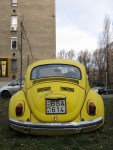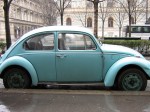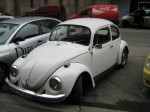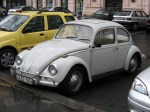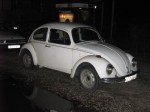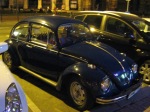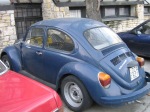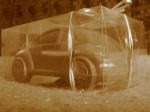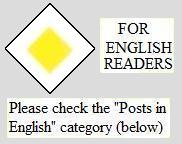In English:
1. “I disagree with what you say; but I will defend until my last breath your right to say it” (Voltaire, my translation)
2. “Deficiency in judgment is properly that which is called stupidity; and for such a failing we know no remedy. A dull or narrow-minded person, to whom nothing is wanting but a proper degree of understanding, may be improved by tuition, even so far as to deserve the epithet of learned. But as such persons frequently labor under a deficiency in the faculty of judgment, it is not uncommon to find men extremely learned who in the application of their science betray a lamentable degree this irremediable want” (Immanuel Kant, Critique of Pure Reason)
3. “The dog respects the man, the cat swindles him, only the pig considers him as an equal” (Confucius – my translation)
4. “Dangerous tools should be taken away from the fool’s hands. Let’s start with pens” (Frank Llyod Wright, my translation)
5. “True human goodness, in all its purity and freedom, can come to the fore only when its recipient has no power. Mankind’s true moral test, its fundamental test (which lies deeply buried from view), consists of its attitude towards those who are at its mercy: animals. And in this respect mankind has suffered a fundamental debacle, a debacle so fundamental that all others stem from it” (Milan Kundera, “The Unbearable Lightness of Being”)
6. “… This above all: to thine own self be true,
And it must follow, as the night the day,
Thou canst not then be false to any man”
(William Shakespeare, Hamlet, Prince of Denmark)
7. “I never think of the future: it comes soon enough” (Albert Einstein)
8. “Look in my face: my name is Might-have-been” (Dante Gabriel Rosetti)
9. “… an animal, at the end of a few months, is what it will be all its life; and its species, at the end of a thousand years, is what it was in the first of those thousand years. Why is man alone subject to becoming an imbecile? It is not that he thereby returns to his primitive state, and that, while the animal which has acquired nothing and which also has nothing to lose, always retains its instinct, man, in losing through old age or other accidents all that his perfectibility has enabled him to acquire, thus falls even lower than the animal itself?” (Jean-Jacques Rousseau, Discours on the Origin of Inequality)
10. “The most beautiful experience we can have is the mysterious. It is the fundamental emotion that stands at the cradle of true art and true science. Whoever does not know it and can no longer wonder, no longer marvel, is as good as dead, and his eyes are dimmed. It was the experience of mystery — even if mixed with fear — that engendered religion. A knowledge of the existence of something we cannot penetrate, our perceptions of the profoundest reason and the most radiant beauty, which only in their most primitive forms are accessible to our minds: it is this knowledge and this emotion that constitute true religiosity. In this sense, and only this sense, I am a deeply religious man… I am satisfied with the mystery of life’s eternity and with a knowledge, a sense, of the marvelous structure of existence — as well as the humble attempt to understand even a tiny portion of the Reason that manifests itself in nature.” (Albert Einstein, The World As I See It)
In German:
1. “Philosophieren heisst eigentlich nicht leben, leben heisst eigentlich nicht philosophieren” (Fichte)
2. “Wir sind nichts; was wir suchen, ist alles” (Holderlin, Hyperion)
In Romanian:
1. „O data pentru totdeauna, exista multe lucruri pe care eu nu vreau sa le stiu. Intelepciunea pune limite pina si cunoasterii” (Friedrich Nietzsche, Amurgul idolilor)
2. “Ceea ce creste-n singuratate e doar ce-aduce fiecare cu sine, chiar si bestia din el. De aceea eu nu recomand prea multora singuratatea […]
Iar daca marea lovitura ati ratat-o, oare sunteti si voi niste ratati? Iar daca insiva voi v-ati ratat, e oare omul pentru-aceasta-un ratat? Iar daca omul e ratat, ei bine: inainte! Inainte! […]
Cu cit ceva e mai de pret, cu-atit e mai greu de obtinut. Voi, oameni superiori, ce va aflati aici, nu sunteti toti – niste ratati?
Fiti voiosi, ce-are-a face! Mai sint atitea lucruri cu putinta! Deprindeti-va sa rideti de voi insiva, asa cum trebuie sa rideti!” (Friedrich Nietzsche, Asa grait-a Zarathustra, p. 370)
3. “Eu spun deci: orice fiinta care nu poate actiona altfel decit sub Ideea de libertate este, tocmai de aceea, din puct de vedere practic, intr-adevar libera, adica pentru ea sunt valabile toate legile care sunt unite inseparabil cu libertatea” (I. Kant, Intemeierea metafizicii moravurilor)
4. “Din pacate, si analiza stiintei – ‘filosofia stiintei’ – este aenintata sa degenereze intr-o moda si sa devina o chestiune de specialitate. Dar filosofii nu trebuie sa fie specialisti. In ce ma priveste, ma intereseaza stiinta si filosofia numai fiindca doresc sa invat ceva despre enigma lumii in care traim si despre enigma cunoasterii acelei lumi de catre om. Si socot ca numai o renastere a interesului nostru pentru aceste enigme poate salva stiinta si filosofia de specializarea ingusta si de credina obscurantista in calificarea speciala a expertului, in cunoasterea si autoritatea lui personala; o credinta ce se potriveste, din pacate, asa de bine erei noastre ‘post-rationaliste’ si ‘post-critice’ care se dedica cu mindrie distrugerii traditiei filosofiei rationaliste si a gindirii rationale insasi” (Karl Popper, Logica cercetarii)
5. “Ti-am mai spus-o si alta data, jupine, fiecare cu raiul lui. Pentru tine, raiul va fi ticsit de carti si de mari damigene de cereala. Pentru altul, va fi plin cu butoaie de vin, de rom, de coniac. Pentru altul, cu teancuri de lire sterline. Pentru mine raiul inseamna asta: o odaita parfumata cu rochii baltate, sapunuri de toaleta, un pat foarte lat cu arcuri si, linga mine, o muiere” (Nikos Kazantzakis, Alexis Zorba)
6. “O noua vrere ii invat pe oameni: sa-si stie drumul si sa-l vrea cu dinadinsul, cel strabatut de ei orbeste, sa simta ca e drumul bun, sa nu-l mai paraseasca pe furis, asemenea bolnavilor si muribunzilor!” (Friedrich Nietzsche, Asa grait-a Zarathustra)
7. “Viata noastra nu este un vis – dar ea trebuie sa devina si va deveni poate unul” (Novalis, Intre veghe si vis)
8. “Atit omul, cit si animalele, au aceleasi senzatii si impresii, pasiuni, impulsuri si emotii similare, unele chiar mai complexe cum ar fi gelozia, ambitia, recunostinta, vanitatea […] posedind aceleasi capacitati de imitatie, atentie, ratiune, alegere, memorie, imaginatie, asociatie de idei, inteligenta desi in grade diferite” (Charles Darwin)
Read Full Post »

